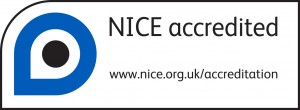NICE accredits the process used by RCOphth to produce its commissioning guides
28 August 2015
 NICE has accredited the process used by the Royal College of Ophthalmologists to produce its commissioning guides.
NICE has accredited the process used by the Royal College of Ophthalmologists to produce its commissioning guides.
Martin Underwood, Chair of the NICE Accreditation Advisory Committee said: “I am delighted to congratulate the Royal College of Ophthalmologists on this achievement. “The process used to produce Royal College of Ophthalmologists commissioning guides is robust, transparent and systematic and results in clearly identifiable, easy to understand recommendations. I would particularly like to congratulate the Royal College of Ophthalmologists on the high level of patient and public involvement. With a lay advisory group in place patients are involved in the scoping, contribute to standing committees, and have a strong representation throughout the process.”
The Royal College of Ophthalmologists (RCOphth) is an independent charity that works with leaders and decision-makers in the eye health sector to help shape eye services for the benefit of patients. It sets standards in the practice of ophthalmology. Its policies are based on clinically based evidence. In October 2014 the Royal College of Ophthalmologists began developing guidance on the commissioning of eye services in the UK.
The Royal College of Ophthalmologists is the sponsoring organisation which defines the need for guidance, sponsors its development and maintains responsibility for its content and dissemination.
The Accreditation Advisory Committee considered that the processes used by The Royal College of Ophthalmologists to produce commissioning guides met 24 of the 25 accreditation criteria.
Carrie MacEwen, RCOphth President said: “We fully support the ethos of the NICE Accreditation Programme and its aim to drive up standards in guidance production. We began developing our commissioning guidance towards the end of 2014 and are delighted to have been able to prove the robustness of our processes and achieve this accreditation in such a relatively short time. The members of the guidance development groups and partners were heavily involved in the process and were instrumental in the Royal College of Ophthalmologists achieving this milestone. Particular thanks go to the Guideline Chairs Richard Smith and John Sparrow.”
Accreditation Mark
The Royal College of Ophthalmologists is now able to display the Accreditation Mark – the ‘seal of approval’ that helps health and social care professionals identify the most robustly produced guidance available, enabling them to deliver high quality care.
Quality standards
Where appropriate the accredited guidelines can now be considered as part of the development of NICE quality standards.
NICE quality standards are derived from NICE guidance and other guidance accredited by the NICE Accreditation Programme. They are central to supporting the Government’s vision for an NHS focused on delivering the best possible outcomes for patients, as detailed in the 2010 NHS White Paper Equity and Excellence – Liberating the NHS.
NICE has accredited the process used by The Royal College of Ophthalmologists to produce its Cataract Commissioning guidance. Accreditation is valid for 5 years from 1 September 2015. More information on accreditation can be viewed at www.nice.org.uk/accreditation
